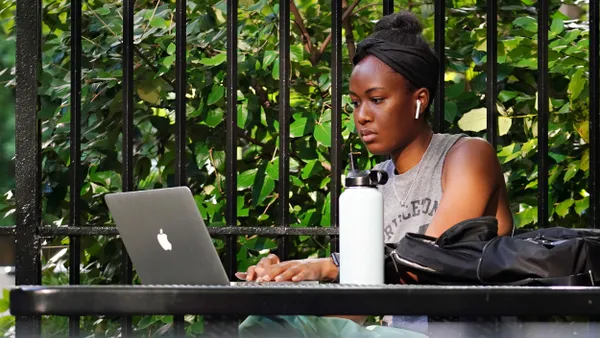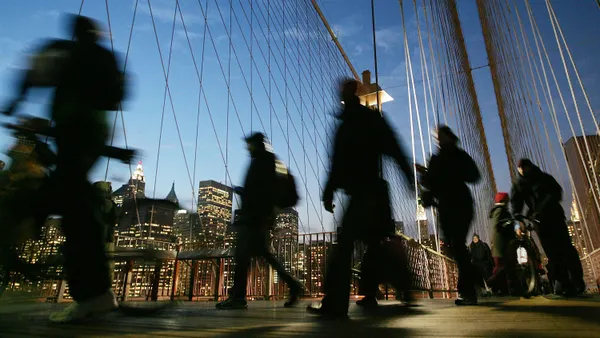Dive Brief:
- Overall representation of women, Black and Hispanic employees at Facebook has increased from 2014 to 2020, according to the company's annual diversity and inclusion report, released July 15. However, representation of Black employees in technical roles in the U.S. has been slow — 1% to 1.7% in six years. Hispanic representation in the U.S. slightly increased from 3% to 4.3%. Women, globally, represent less than a quarter (24%) of technical roles, an increase from 15% in 2014.
- Among employees in non-technical roles, 9% are Black and 10.7% are Hispanic, an increase from 2% and 6%, respectively, in 2014. Women are represented in more than half (58.5%) of non-technical roles, an increase from 47% in 2014. Leadership at Facebook is 65.8% male, (a decrease from 77% in 2014) with 3.4% and 4.3% of roles filled by Black and Hispanic employees, respectively.
- In 2019, the company set a goal for underrepresented employees to account for 50% of its workforce by 2024. "This year, we are making an additional commitment: to increase the representation of people of color in leadership positions in the U.S. by 30%, including a 30% increase in the representation of Black people in leadership, by 2025," Maxine Williams, Facebook's chief diversity officer, said in a blog post. "Increasing representation in technical roles, and overall, remains a major focus of our efforts in the immediate and long term," she said.
Dive Insight:
Facebook wants "inclusion to be a leading factor — not a lagging one — in everything we do," Williams said in the July 15 blog post. The company has committed to spending $1 billion with diverse suppliers in 2021, which will include a $100 million spend with Black-owned businesses, she said.
"We pledged another $100 million in grants and ad credits to Black small and medium-sized businesses, creators and non-profits in the US, among other financial investments," Williams said.
However, some Facebook employees recently questioned the company's policies in regard to posts.
A group of employees participated in a virtual walkout in June following posts by President Donald Trump on the website about the national protests in light of the killing of George Floyd and the company's decision not to remove the posts, according to The New York Times. The employees did not work June 1 to show their support for demonstrators, The Times reported. Facebook did not require employees to use their own paid time off during the walkout.
"We looked very closely at the post that discussed the protests in Minnesota to evaluate whether it violated our policies," Facebook CEO Mark Zuckerberg said in a Facebook post May 29. "Our policy around incitement of violence allows discussion around state use of force, although I think today's situation raises important questions about what potential limits of that discussion should be."
A number of companies have joined Stop Hate for Profit boycott of Facebook advertising organized by the Anti-Defamation League and civil rights associations including the NAACP. The boycott is over concerns about the website's role in disseminating inaccurate information and hate speech. Coca-Cola and Starbucks are halting advertising on all social media, not just Facebook, according to HR Dive sister publication Marketing Dive.












